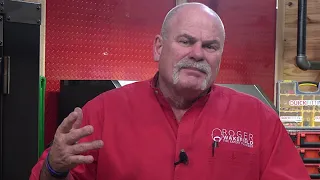In “8 Plumbing Tips from 88 Years of Experience,” we explore time-tested advice from two long-time professionals who have collectively spent nearly nine decades working in the plumbing trade. If you’re an aspiring plumber, a seasoned Journeyman, or even an established business owner, these insights can help you refine your skills, expand your opportunities, and better serve customers. A plumbing career isn’t just about fixing leaks; it’s about continuous growth, mastering new techniques, and treating both your colleagues and clients with honesty and respect.
Tip 1: Recognize Plumbing as a Career, Not Just a Job
Many people jump into plumbing simply because they want quick employment. While plumbing can indeed provide a solid paycheck from day one, it also offers a path to a fulfilling, long-term career if you approach it with the right mindset. You might begin as an apprentice, but the opportunities are endless:
- Join a union and move up through its ranks.
- Work for a large commercial or residential plumbing company.
- Put in enough years to earn a Master Plumber’s license and run your own service company.
When you realize that plumbing is a professional trade—one that requires licensing, training, and ongoing education—you’ll see that there’s no “ceiling” to what you can achieve. Hard work, determination, and curiosity can lead to supervision roles, business ownership, or specialized positions that command higher wages. Your career is what you make of it: aim high, set goals, and remember that plumbing is far more than just “a job.”
Tip 2: Never Stop Learning
Learning doesn’t end once you earn a plumbing license. In fact, that’s just the beginning. The trades continually evolve, and so should you. Today’s homeowners want more than standard fixes; they look for professionals who understand new fixtures, emerging technology, and the latest best practices.
Here’s how to keep learning:
- Take advanced courses beyond the mandatory continuing education.
- Subscribe to trade magazines or reputable online channels for regular updates.
- Learn leadership, project management, or business strategies if you aim to climb the ladder.
- Ask questions of experienced plumbers; even if they’ve been in the trade fewer years, they may have unique methods or insights.
Becoming a Master Plumber, or even just the most knowledgeable journeyman on your crew, requires a mindset of constant curiosity. Every time you encounter a challenge on the job, it’s an opportunity to grow. Failure to adopt new techniques and new skills can leave you stagnating—or even worse, falling behind the competition.
Tip 3: Always Do the Right Thing
In a field where safety, building codes, and customers’ trust are paramount, nothing trumps integrity. Doing the right thing means more than just “going by the book.” It means going above and beyond to ensure the job is done correctly, safely, and ethically. That means:
- Double-checking fittings, seals, and installations.
- Ensuring all pipes are true, plumb, and square if you’re doing a new installation.
- Taking pride in neatness, whether you’re running new pipes in a commercial building or installing a water heater in someone’s home.
- Owning up to mistakes promptly and correcting them without cutting corners.
When you have a reputation for thorough, high-quality work, you become the plumber who’s recommended time and time again. Even if you face minor setbacks on a job, adhering to impeccable standards builds a foundation of trust with clients, colleagues, and inspectors alike.
Tip 4: Watch, Learn, and Ask Questions
Plumbing is a hands-on profession where you learn by doing, but there’s also tremendous value in paying attention to others. Whether you’re shadowing a more experienced plumber or simply observing a skilled apprentice with fresh ideas, be open to different methods. Maybe you’ll discover:
- A more efficient way to clear drains without needing expensive equipment.
- A unique approach to installing fixtures that cuts down on labor time.
- A new scheduling or organizing technique to manage your day better.
Don’t be shy about asking questions if you’re unclear on a process or a particular piece of equipment. In plumbing, no question is “dumb” unless it goes unasked. People who share knowledge also solidify their own skills by teaching. This peer-to-peer exchange of ideas builds a stronger, more collaborative team and elevates everyone’s work.
Tip 5: Attend Trade Shows and Industry Events
It’s easy to get stuck in a day-to-day routine—fixing leaks, unclogging drains, running service calls—without ever seeing the bigger picture of the plumbing industry. That’s where trade shows and conventions become invaluable. They give you the chance to:
- Test out the latest tools, materials, and technology.
- Network with peers, manufacturers, and suppliers.
- Learn about industry trends, from water-efficient fixtures to cutting-edge diagnostic equipment.
- Attend workshops and seminars to deepen your technical know-how or business savvy.
When you invest time in these events, you stay ahead of the curve. You’ll also meet people from different markets who might use innovative methods, and you can bring those ideas back to your own business. Even a single new tool or process can dramatically improve your service quality, reduce labor costs, and give you a competitive edge.
Tip 6: Do the Job Like You’d Want It Done in Your Own Home
Sometimes, customers don’t fully grasp the intricacies of plumbing. Because of that, a few people in the trade may be tempted to oversell services or mark up prices. Yet if you want a long, respectable career, base your work on honesty and compassion. Treat your client’s home like you’d treat your own—or your mother’s.
Perform thorough repairs and offer additional services only if they genuinely benefit the homeowner. This approach builds trust and fosters repeat customers, who are more likely to spread the word about your fair, high-quality service. Being transparent in pricing, clear in your explanations, and respectful of the homeowner’s property will keep you in business for the long haul.
Tip 7: Offer Options and Conduct a 360 Inspection
Whether you’re fixing a simple flapper or replacing a major fixture, it’s good practice to conduct a quick inspection of related plumbing systems while you’re on-site. A thorough inspection doesn’t mean you’re pushing extra sales; it means you’re looking out for hidden or developing issues.
- Check water pressure and test for leaks in adjacent fixtures.
- Examine water heater performance; is it nearing the end of its lifespan?
- Look for signs of high chlorine or other water quality issues.
- Suggest solutions like water filtration if evidence points to a relevant need.
People often don’t realize their plumbing system has multiple components that can affect each other. By educating customers about possible future problems and offering them various solutions, you let them make informed decisions. You’re not just a plumber—you’re a trusted advisor who can help protect one of their biggest investments: their home.
Tip 8: Build and Leverage a Network
One of the biggest secrets to success in any trade is having a strong professional network. This network can include:
- Other plumbers who may send overflow work or refer clients if they’re too busy.
- Electricians, HVAC technicians, roofers, and general contractors who can recommend you when their clients need plumbing services.
- Mentors you can call for guidance on unusual business or technical scenarios.
- Younger apprentices who bring fresh perspectives, ask great questions, and have the potential to become future business partners.
Building relationships with fellow tradespeople creates a mutual support system. Customers appreciate one-stop solutions—if they trust you, they’ll value your recommendations for other skilled professionals. When you refer a reliable HVAC tech or electrician, you become a go-to contact for anything related to the home.
Seeing the Bigger Picture
Plumbing is not just about unclogging toilets or fixing broken pipes. It’s about shaping a career that offers stability, growth, and daily opportunities to learn. As you incorporate these eight tips into your own practice, remember that they come from professionals who’ve been “in the trenches” for a combined 88 years. That level of experience translates to real-world lessons on building character, honing craft, and creating a successful long-term path.
- View plumbing as a career, not just a job.
- Commit to constant learning, even after you’re licensed.
- Uphold the highest ethical standards—always do the right thing.
- Watch, learn, and ask questions to glean new ideas and techniques.
- Attend trade shows to stay on top of the industry’s newest tools and trends.
- Treat your customers’ homes as if they were your own.
- Perform 360 inspections and offer informed options, never pushing unnecessary services.
- Build a robust network of industry peers and related professionals.
None of these tips are complicated, but they do demand discipline, humility, and a genuine respect for the craft. When you keep each of these pointers in mind, you’ll be well on your way to a flourishing plumbing career—one that doesn’t just serve your customers but also provides you with ongoing job satisfaction and financial rewards.
Putting It All Together
The plumbing industry offers an incredible range of opportunities—from mastering technical skills to running a thriving service business. Yet seizing these opportunities requires more than just turning up for work each day. It calls for a genuine passion for the trade, the willingness to keep learning, and an unwavering sense of integrity.
If you’re new to the field, consider finding mentors who exemplify these values. If you’ve been around for a while, take pride in teaching the next generation—share your knowledge, correct mistakes with kindness, and set a positive example. In doing so, you not only strengthen your own skill set, but you also elevate the entire profession.
Plumbing, at its heart, is about solving problems for people in their homes and workplaces. When you adopt a mindset of constant improvement and emphasize ethical, top-quality work, you stand out in a crowded market. Clients will trust you, colleagues will respect you, and your reputation will open doors you never expected.
Conclusion
In “8 Plumbing Tips from 88 Years of Experience,” we’ve highlighted ways to build a plumbing career that stands the test of time. Whether it’s refining your craft with ongoing education, attending trade shows to see what’s new, or treating your customers with the fairness you’d want for yourself, each piece of advice leads to a more fulfilling—and profitable—future. Always keep learning, respect the craft, and remember that every job is an opportunity to improve someone’s home and strengthen your own reputation. Before you know it, you’ll be the seasoned professional giving the next generation your version of these eight invaluable tips.




